• New York Court Orders New District Maps
• Begich Is Back
• R.I.P. Editorial Cartooning
• Maybe the Legal Pundits DO Get It
• I, The Jury, Part VIII: In the Jury Room
• Scavenger Hunt, Part IV: Mitch McConnell's Reading List
• This Week in Schadenfreude: Not My Pillow, Not Your Pillow, Not... Anybody's Pillow?
• This Week in Freudenfreude: Power the Polls
Over-the-Counter Birth Control Pill Approved
The folks who are deeply involved with this issue say this is a game changer, and we're certainly in no position to say otherwise. Yesterday, the FDA approved Opill for over-the-counter sales. With this development, the U.S. joins a list of over 100 countries that allow people to purchase birth control pills without a prescription.
It's actually worth a moment to take a look at the map available at that link, because it may not be what you expect:
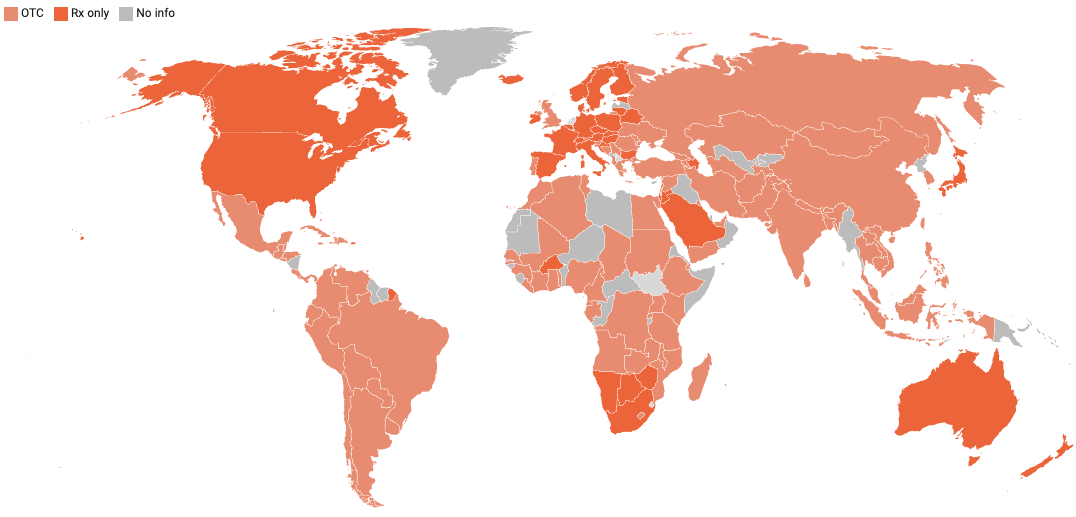
Per the key in the upper left, dark orange countries require a prescription for birth control (obviously the United States' color has not been updated yet) while light orange countries sell the medication over the counter. So, the U.S. just broke ranks with most of the industrialized democracies of the world, and joined with the nations that are poor, developing and/or overpopulated.
Again, we are hardly experts in this subject, but the message of that map seems crystal clear to us. Opill, which contains the hormone progestin, has some downsides, as most drugs do. Most notably, it can increase the risk of breast cancer, it can lead to excessive bleeding and it isn't effective if not taken in the same 3-hour window each day. But it's been around for half a century, and the world's poor, developing and/or overpopulated countries appear to have decided that they simply cannot afford to be overly fastidious about this issue.
Now the U.S. appears to have reached that point as well. And that's where the political angle comes in. The anti-abortion forces in the country saw Dobbs as a great victory for them. Which it was. But every reaction has an equal and opposite reaction, and the easier access to Opill is a part of that counter-reaction from the government and from pro-choice forces.
We have no doubt that a couple dozen red-state attorneys general will soon file suit, trying to stop the FDA in its tracks. More specifically, gazing into our crystal ball, and drawing on our remarkable foresight, we predict that case will be filed in Amarillo, TX. But it's going to be a real uphill climb to overturn approval of a drug that's been available in the U.S. since 1973. And more broadly, there are so many ways for women, even in red states, to get their hands on birth-control and abortifacient pills, it's inconceivable that the red-state governments will be able to shut all pathways down.
If the anti-abortion movement had contented itself with eliminating surgical abortions to the greatest extent possible, it might have had considerable success with that, at least in the short-to-medium term. But the tendency to go after almost all forms of birth control? Sure looks like they picked a fight they cannot win. Of course, given how many politicians have embraced anti-abortion because it's a useful wedge issue, as opposed to because they are actually anti-abortion, an unwinnable fight might be exactly what they want. (Z)
New York Court Orders New District Maps
As far as New York Democrats are concerned, things are finally going according to plan. They tried to get away with a highly gerrymandered map in 2022, and got slapped down by a staunchly Republican judge in a staunchly Republican county. This decision was upheld by the New York Court of Appeals, which is that state's highest court. The result of all these machinations was a map that was ultimately pretty kind to Republicans, and probably netted the GOP 3-5 House seats as compared to what they would have had by the gerrymandered map. As a reminder, a flip of 5 seats (i.e., the upper edge of that) would have meant Democratic control of the House of Representatives.
The rules (a.k.a. the Constitution) say the districts have to be redrawn once every 10 years. There is nothing prohibiting two or more redrawings (is that a word?), however. And yesterday, a New York redrawing came closer to being a reality, as a New York appellate court (though not the Court of Appeals) struck down the current map, and ordered the process to begin anew. That means that an independent commission will be tasked with drawing a "fair" map; if the commission's work is twice deemed unsatisfactory by the legislature, then the legislature can draw its own map and approve it.
There's still much drama ahead, and with diminishing time before the 2024 election. Yesterday's decision will be appealed by the New York GOP, and eventually the Court of Appeals will make a final decision. Then, assuming the current status quo holds, the redistricting process will have to play out. The whole point here is for the Democrats to gain seats, so if the "fair" map developed by the commission doesn't do that, then the blue team will impose its own map and hope that the more-liberal-than-last-year Court of Appeals approves. The Democrats will also have to decide exactly how many seats they want to go for. If they satisfy themselves with, say, +2, then they are more likely to get away with that as opposed to shooting for the moon. It's really quite the chess game. (Z)
Begich Is Back
If at first you don't succeed, try, try, again. That would appear to be the mantra of Nick Begich, because after twice being defeated by Rep. Mary Peltola (D-AK), in both the special election and regular election held last year, he announced yesterday that he's going to run for the seat again.
The Begich name is dynastic in Alaska; Nick III's grandfather Nick Sr. held the seat that Peltola now occupies, his uncle Mark was a senator, and his uncle Tom (no, not that Uncle Tom) served in the Alaska state Senate. So, it's no surprise that Nick III wants to try to break into the family business. That said, people who remember the Begich name fondly are largely remnants of a different era of politics, and most certainly not the era that is ascendant right now.
The candidate already seems to be struggling with his messaging. On one hand, he promised a "hopeful, optimistic, and positive vision" for the future. On the other hand, Begich's campaign announcement led with a litany of things that are disastrously wrong with the country:
What we are seeing in Washington is broken: lost opportunities for Alaskans, a focus on so many of the wrong priorities, big government lobbyists and insiders who are selling our nation to the highest bidder, and a President who often can't find his own way off a stage.
That doesn't exactly square with the candidate's promise to be optimistic.
Obviously, Alaska is a red state, albeit a populist-ish red state with a political culture not unlike that of Montana (which is also large and sparsely populated). Residents of both states are willing to elect Democrats to statewide office, on occasion, which is why Peltola has twice won election there. Begich, for his part, not only lost both elections, but he came in third behind Sarah Palin. Not good. Presumably, his thinking is that in a race with only two major candidates, the Republican vote will align behind him, since most Palin voters are likely to prefer a moderate Republican over a very centrist Democrat. Maybe so, but incumbency matters a lot, and there's also every chance that a far-right nutter (possibly Palin herself) is going to jump in and make it another three-way race. (Z)
R.I.P. Editorial Cartooning
If you are a big fan of editorial cartoons, then yesterday was Black Thursday. McClatchy, which operates 29 daily newspapers, has decided that devoting space to such content no longer makes sense. And so, the publisher fired all of the editorial cartoonists on its payroll. Among the heads that rolled were those of three Pulitzer Prize winners: Jack Ohman of the Sacramento Bee, Joel Pett of the Lexington Herald-Leader and Kevin Siers of the Charlotte Observer.
The cartoonists who lost their jobs all said they were stunned and that they did not see this coming. That may be true in the sense of "I didn't realize I would be out of work by July 15." On the other hand, the trends that led the industry to this place have been evident for years, and even decades. In no particular order:
- Real estate, in print editions, is increasingly scarce and increasingly precious. Bill Watterson, of Calvin and
Hobbes fame, may not have been an editorialist, but he was certainly a cartoonist. One of the reasons he left the
business is that he was tired of being squeezed into increasingly small spaces. And that was in... 1995.
- Editorial cartoons use an idiom that is quite idiosyncratic, and that requires a learning curve before readers
really "get it." If people aren't reading newspapers anymore, much less the cartoons in the newspapers, then they're not
being initiated into the club.
- When editorial cartoons were first developed, roughly 150 years ago, they filled an important niche. Many readers
weren't literate, or else weren't literate in English, but everyone can understand pictures. Needless to say, that niche
doesn't exist anymore, even if American culture is arguably even more visually oriented today than it was in the 19th
century.
- Garry Trudeau, of Doonesbury fame, famously operates under a very short deadline (his is about a week, the
norm for syndicated cartoonists is about a month) so he can be nimble and respond to current events. Cartoonists who
work for just one paper are able to be even more nimble. But neither Trudeau nor the single-paper cartoonists can
compete with what has really supplanted the editorial cartoon, namely the meme. If, say, Gov. Ron DeSantis (R-FL) says
something stupid or evil, that meme can spread to a million Facebook pages before Trudeau is even able to get out his
drawing pencil.
- Given that editorial cartoons are old hat, newspapers have to think about things they can do visually that complement their coverage and that may not be so easy for a kid with an iPad and a copy of Affinity Photo to replicate. So, their resources are going into fine-art type stuff (think the "mugshots" in The Wall Street Journal) or into data-driven visual journalism. The Pulitzer Prize for Editorial Cartooning was renamed, in 2021, to the Pulitzer Prize for Illustrated Reporting and Commentary. And since 2018 (i.e., even before the name change) it has gone to non-cartoonists. The most recent winner, for example, was The New York Times' Mona Chalabi, who won for her series of infographics that put Jeff Bezos' wealth into some sort of context.
Naturally, just because we understand the reasons that editorial cartooning has one foot in the grave does not mean we cheer this development. It's a shame that an art form with such a celebrated history is headed the way of the dodo, but nothing lasts forever. It's really the print equivalent of AM radio, a 20th-century cultural force that has become a dinosaur in the 21st century. (Z)
Maybe the Legal Pundits DO Get It
Yesterday, we had an item about the potential for a rogue juror in one (or all) of Donald Trump's legal cases, under the headline "The Legal Pundits Don't Get It Either." The central point of that piece was that it's going to be tough to craft juries without any die-hard MAGA types on them, and that jurors who simply won't vote to convict the Dear Leader may end up being his salvation.
Today, we're going to start a run of readers' jury-service narratives that speak to the things that happened in the jury room (see below). Reading those entries affirms what every reader surely already knows: Anything can happen with a jury made up of citizens chosen (largely) at random. The involvement of Trump, and the fact that there are very few Americans who do not have a strong opinion about him, simply increases the chance of unexpected results.
That said, we also thought we would provide the counterpoint to yesterday's piece. It is absolutely the case that Trump could be dead-to-rights, and that he could nonetheless be saved by a friendly juror. But it's also the case that he should not be sleeping easy. Here are some of the main reasons why:
- Track Record: Since becoming president, Trump has been in front of a jury once (E. Jean
Carroll case) and he's used a settlement (Trump University) to avoid a second occasion. Numerous of his acolytes, from
Paul Manafort to Steve Bannon to Roger Stone, have also been in front of juries. Before each trial, there was a surfeit
of op-eds about the possibility of a rogue juror. And yet, it hasn't happened. Even though there were known staunch
Republican and/or MAGA members of each of those juries, their politics were not enough to overrule their oath as
jurors.
- Voir Dire: We keep coming back to this, but it's worth noting again. The people who
evaluate jurors, which includes counsel on both sides of the case, as well as the judge, are generally pretty good at
weeding out bad apples. Trump's lawyers know they are going to be stuck with some Biden voters. Jack Smith knows he is
going to be stuck with some Trump voters. The key is not to find a non-Trump or non-Biden jury, since that won't happen,
it's to find a jury that will be guided by the facts.
- Peer Pressure: Even if a too-Trump-friendly juror sneaks through voir dire, it's not so
easy to sit in a jury room and withstand hours of pressure from 11 other jurors. It is also not so easy for most people
to flagrantly disregard the law and their oath. Generally, people want to think of themselves as being decent,
honorable, etc., and are not sociopaths willing to completely ignore the distinction between right and wrong.
- The Numbers Game: Thus far, Trump is facing two criminal cases. One of them, the one in
New York, is in a venue, and before a judge, that are none-too-friendly to the former president. The other, the one in
Florida, is in a friendlier venue and with a judge that, well, the jury's still out (no pun intended). Trump may well
get lucky in one case, or even two, particularly if he ends up with a judge willing to tote his water. But if he ends up
indicted four or five times? And if any mistrials are retried? He's not likely to hit the jackpot seven or eight or nine
times. To take one example, Aileen Cannon sits in the reddest part of the United States District Court for the Southern
District of Florida. Nearly any other judge in that District sits in a much bluer town. And that's before we consider a
possible case in Washington, DC, where MAGA types are roughly as scarce as people who like Sen. Ted Cruz (R-TX).
- Juror Swapping: This is a very important point, and we have seen very little discussion of
it. Since we are not attorneys, we're going to be very careful to show our work, so readers can verify for themselves.
However, the basic point is that, even once deliberations have begun, it is possible to boot a rogue juror. It's not
common, but it's possible.
To start, Rule 24 of the Federal Rules of Criminal Procedure says that up to six alternate jurors may be empaneled by a judge. And those six can be dismissed once deliberations begin, or they can be held over in case a substitute is needed. Undoubtedly, in a case involving a former president, the maximum number of alternates will be chosen, and they will be retained until the bitter end. No cutting corners with something this high profile.
More important to this discussion is Rule 23, which says "After the jury has retired to deliberate, the court may permit a jury of 11 persons to return a verdict, even without a stipulation by the parties, if the court finds good cause to excuse a juror." There is also Rule 47, which says "During trial or deliberation, the court may excuse a juror for good cause." So, it's possible to dump one juror and fly with 11, or to dump one juror and replace them with a different juror.
The only question left, then, is: "What does 'good cause' mean?" There, the Federal Rules of Criminal Procedure are wanting, because they provide no definition. There's little question that a family emergency, a health crisis, the commission of a crime, etc. are "good cause." More broadly, there's also little question that a judge has broad discretion in determining "good cause." And, as a consequence of judges exercising that discretion, there is also substantial case law sustaining the removal of jurors for various hostile-to-justice behaviors. In U.S. v. Kemp (2007), for example, a judge's decision to remove a juror for bias and refusal to deliberate was upheld. In United States v. Wetselaar (2017), a judge's decision to remove a juror solely for refusal to deliberate was upheld.
Needless to say, a judge who is in the bag for Trump is not likely to exercise this rather extraordinary power. But a judge who is not in the bag, and who learns (say, through questioning the foreperson of the jury) that one juror is unwilling to participate in the process? There could absolutely be a change in jurors. Should there be a conviction thereafter, Trump would appeal, of course. But the Federal Rules of Criminal Procedure and existing precedent would not be on his side.
The bottom line is this: As we wrote yesterday, anyone who says the case against Trump is a done deal, and that he's 100% done for, is simply not correct. There are too many variables to be so certain. But anyone who says that he's certain to skate, thanks to the likelihood of seating a friendly juror, is equally wrong. There are all kinds of problems with that "strategy," which may be why Trump seems to be more interested in pursuing it than are the legal professionals in his employ.
Also, as long as we are on this subject, we'll note a couple of news-ish items on this front. First, CNN reported yesterday that former aide Hope Hicks and current son-in-law Jared Kushner both testified before the Washington grand jury. Nobody knows what was said, which is why this is only news-ish, but the point of two of the most inside of Trump insiders being there was probably not to exchange quilt patterns and gluten-free pizza recipes.
And finally, a group of six lawyers writing for Just Security has just published a proposed model prosecution memo on the subject of Trump, election interference and the 1/6 insurrection. And by "prosecution memo," we really mean "prosecution novel" (it's 264 pages and 116,000+ words). Head over there and read it, if that's your thing, but the two biggest takeaways are: (1) Trump's got a world of trouble when it comes to the insurrection, and (2) the lawyers' guess is that an indictment is coming very soon, perhaps even before Fani Willis gets going in Georgia. If everyone is reading the tea leaves correctly, Trump could double the number of indictments he's under by the time the U.S. celebrates National Failures Day (August 15). (Z)
I, The Jury, Part VIII: In the Jury Room
As we note above, we move today into reader accounts that speak to the dynamics inside the jury room:
R.H. in Corning, NY, writes: I served on a jury a few months ago on a DUI/DWI case. In my opinion, the voir dire process was less than thorough. The prosecuting attorney should never have let me (a research scientist) anywhere near this jury. On a daily basis, I follow industry standards to test glass durability. In this case, the state trooper did not follow national standards when performing the roadside sobriety tests. We were able to see some of the testing (and his multiple errors) on body camera.
I think the defendant was likely guilty, but had to vote not guilty due to the lack of rigor during the roadside testing. On the other hand, fully 50% of the jury voted not guilty because "I've seen drunk people before, and he just didn't look that drunk to me." My faith in the jury system took a hit that day when we ended as a hung jury.
R.B. in Brooklyn, NY, writes: I was on a hung jury 30 years ago in New York (Manhattan), and my sense of how differences of opinion stacked up among the jurors is probably still relevant. The crime was a cocaine sale, for which another defendant had already been found guilty in a separate case. Our defendant was alleged to have directed the deal (while keeping his hands clean by leaving it to the other guy to exchange drugs for money), but he claimed to have been an innocent bystander who merely provided directions to someone who asked him where to get drugs nearby—not itself a crime. The defendant was a dark-skinned Latino man in his 20s (native New Yorker, from his accent) who worked as a building superintendent in the neighborhood, and he claimed to have just spoken to the buyer briefly while on his way to get cigarettes nearby. He'd been fingered by an undercover cop as participating in the deal, but the truth of that was unclear. One issue was where, physically, the arrest took place: The arresting officer didn't testify, but another policeman from the team (in what was actually secondhand testimony) reported that it happened on the street corner (14th and 3rd, now rather less seedy), where the seller was presumably awaiting customers, whereas the defendant said he was grabbed inside the nearby convenience store while buying his cigarettes. The undercover cop had moved on by that point, and the storekeeper didn't testify; afterward a defense lawyer told us he'd confirmed the defendant's statement but wouldn't testify because of immigration issues.
So to my mind we had: (1) an undercover cop viewing the situation and fitting the participants into an idea he had of what was likely to be happening—maybe rightly, maybe not; (2) another police officer giving hearsay testimony; (3) the arresting officer not appearing, for unclear reasons; and (4) no other eyewitnesses but the defendant to either his discussion with the buyer OR the arrest (the location of which seemed crucial). With all that, I was simply not convinced of the defendant's guilt beyond a reasonable doubt, and I could believe that he might know who sold drugs there and not have a moral objection to telling a passerby—but some jurors found that unbelievable. That and the arrest location were our main sticking points during deliberations, and we clearly split on whether we believed the defendant's story, and especially the plausibility of his telling someone where to get drugs if he wasn't in cahoots with the dealer, along three very clear measures: younger to older, darker to lighter skinned, and female vs. male. (We were roughly half and half on all three measures; I'm a white woman and was then in my mid-20s). Although I could only guess at this, there were also almost certainly splits on political lines, which the gender division may have reflected. We also had similar splits over the undercover cop's theory of the defendant's actions (the undercover, incidentally, was also a young, mixed-race man)—older, white, and male jurors tended to believe it and younger, darker-skinned, and female jurors were skeptical.
For my part, I believed the undercover cop thought he saw the defendant participating in a crime, but I wasn't convinced his take was accurate; and I could easily imagine the defendant's possible mindset (maybe "I'm going to answer this question so I can get away from the fool who asked it out in public.") Most importantly, I didn't think the prosecution had proved their case and felt they'd done a sloppy job of trying. Seven other jurors of the 12 had more or less the same opinions, and 5 believed the defendant was guilty. (From a couple of the male jurors, I got a strong whiff of "You're just soft-headed women who refuse to believe the worst of anyone.") We deliberated for almost 12 hours, minus lunch and dinner breaks, and ultimately, the second time we reported being unable to reach a verdict, the judge dismissed us without one. I don't know if the case was retried but doubt it.
S.L. in Glendora, CA, writes: I haven't served on a jury, but my father served twice, leaving him with very little respect for the jury system. I sincerely hope that his experiences don't give us any insight into what may happen in Donald Trump's trial. In both cases, the defendant was clearly guilty, yet there were jurors who balked at conviction.
In one trial, the defendant had been caught by the police redhanded taking a television out of a day care center. There had been another young man also removing things, but he was faster and had gotten away. The defendant's story was that he didn't know he was stealing anything. The other guy had told him that the daycare wanted some things moved and asked him to help. It hadn't occurred to him that there was anything suspicious about moving the stuff in the middle of the night. A couple members of the jury thought he should be acquitted because it wasn't fair that he was being punished while his partner in crime had gotten off scot free. It was just a shame that he just couldn't remember who the other guy was. My father was jury foreman, and he said he just refused to let anyone leave until they all agreed to vote guilty.
In the other trial, a man got very drunk and took a large kitchen knife next door and robbed his neighbors, who knew exactly who he was and had no trouble identifying him. He had then staggered out into the street where he dropped the knife and much of the cash on his way home. The police recovered the rest of the cash and returned it to the neighbors. Despite the overwhelming evidence, one woman on the jury wanted to acquit. Her argument was that since the neighbors had gotten their money back, it was no harm, no foul. What was the problem, anyway? My father said he picked up the knife and walked toward her asking if that made her feel threatened. She voted guilty.
There is no guarantee that there will be someone like my father on Donald Trump's jury.
S.B. in Granby, MA, writes: Many years ago, I served on a jury for a rape trial. The trial was held in a small city (fewer than 30,000 people). But three of us on the jury were from the same small town (fewer than 6,500 people) and two of the three from that town even worked in the same place. So I have a lot of doubt about the randomness of jury pool selection.
I don't remember much about the voir dire process or how we selected a foreman. I do remember that after 2½ hours, and a long afternoon of debate, it came down to 11 of us voting for not guilty and one hold out who voted guilty. Now to be clear, most of us felt that there was a very likely chance that the rape really did occur, but we had been charged appropriately by the judge to weigh the evidence and decide if the case had been proved beyond a reasonable doubt, and quite frankly, the poor girl had the most pathetic lawyers imaginable. They simply didn't do the job of providing sufficient proof. They wasted a lot of time paging through their notes and occasionally asking a useless question. The one holdout on the jury just kept insisting that he believed the defendant had done it. The rest of us eventually wore him down, but none of us felt good about it. The judge talked to us after the trial was over and sympathized with our feeling, but told us we had made the only decision that could reasonably be made. Even she insinuated that the lawyers for the girl had been pretty bad.
So based on that one experience and then reading the other juror stories so far, I am worried. Florida is way too Trumpy for my peace of mind. The one thing that I pin my hopes on is that by all (intelligent) accounts, Jack Smith is no dummy, nor is this his first ride on the merry-go-round. I have to believe that he has already anticipated everything that could go wrong and has his plans mapped out for each possible situation.
V.H. in Lexington, MA, writes: I was on a jury shortly before COVID hit. It was a medical malpractice case. The wife was suing the anaesthesiologist and a physician's assistant after her husband died following surgery on his spine. The witnesses were all doctors, and gave highly technical testimony about the procedure and post-operative care. We the jury were following along as best as we could, and trying to digest all the conflicting testimony. As we weren't allowed to discuss the case until the very end, I spent a lot of time worrying about how I was going to convince the other jurors that the plaintiff's case didn't make any sense, and was mostly centered on appealing to our sympathy about the terrible outcome. I was particularly worried, as the anaesthesiologist was clearly a Chinese immigrant, and the plaintiff's lawyer also seemed to be subtly appealing to our racism while making his case.
After around ten doctors testified, we finally got a chance to discuss it. It turned out that all the jurors were thinking along exactly the same lines I was. The most articulate among us was an unemployed landscaper who expertly poked holes in the plaintiff's case. We spent around an hour and a half reviewing the case, mostly as a formality, and then basically cleared the defendants of all charges. I needn't have worried. Very smart jury, and my confidence in the legal system was much enhanced.
Some of these accounts don't align with what we wrote above about replacing rogue jurors. There are two primary reasons for that: (1) replacing rogue jurors is something many judges are loath to do, and, more importantly, (2) the rules governing state courts are often quite different from the ones governing federal courts.
More on this subject next week. (Z)
Scavenger Hunt, Part IV: Mitch McConnell's Reading List
Back to the Fourth of July scavenger hunt. Here's the list of questions
- The single photograph or image that best encapsulates the Trump presidency. (click here and here)
- Something that would make a terrible Christmas gift for Joe Biden. (click here).
- A book that Senate Minority Leader Mitch McConnell would never, ever read.
- A t-shirt that would be very apropos for Chief Justice John Roberts to wear. (Submit here)
- The wisest, most insightful, or most pithy quote ever to be uttered by a politician or political figure (need not be limited to Americans). (Submit here)
- The worst bumper sticker, button, yard sign or other campaign-related ephemera in U.S. history. (Submit here)
- A portrayal of a key figure in U.S. history—image, song, verse, book, etc.—that is even more ridiculous than Abraham Lincoln: Vampire Hunter. (Submit here)
- This isn't exactly a scavenger hunt type question, but we're going with it anyhow. Finish this joke: "Donald Trump, Ron DeSantis and Hillary Clinton walk into a bar..." (Submit here)
And now for some books that the Senate Minority Leader would never, ever read:
R.R. in Pasadena, CA, writes:
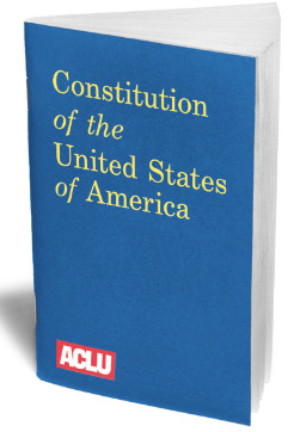
One book I can be sure that McConnell has never read is the pocket Constitution... if he had, he'd know how badly he's undermined it over the years.
J.W. in North Canton, OH, writes:

P.W. in Springwater, NY, writes:
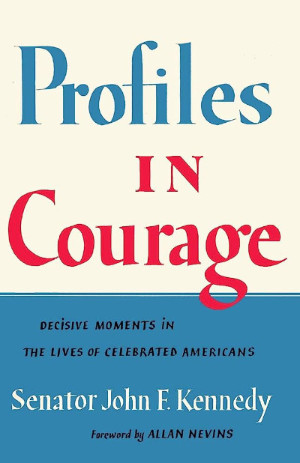
Maybe too obvious, but I don't think it's possible that McConnell has read Profiles in Courage. Most turtles (ninjas aside) are not known for their courage and McConnell is a prime example.
Also submitted by: K.J.O. in Brookdale, NJ; G.G. in Tucson, AZ; B.G. in Teaneck, NJ; J.K. in Portland, OR; A.R. in Los Angeles, CA; T.W. in Phoenix, AZ; G.S. in West Lafayette, IN; D.T. in Parsonsfield, ME; E.L. in Pleasant Valley, NY
M.C. in Scotch Plains, NJ, writes:
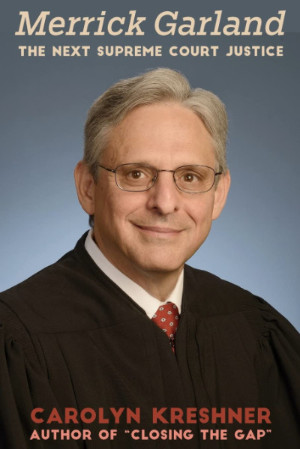
M.M. in Gypsum, CO, writes:
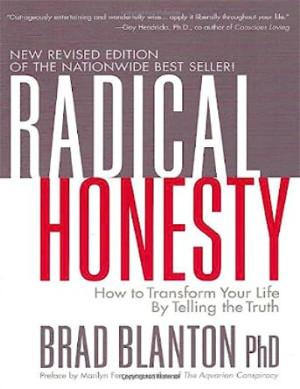
J.M. in Portland, OR, writes:

It's advice from brown people of a non-Christian culture about how NOT to be a trash human.
C.W. in Carlsbad, CA, writes:

Turtles? Not going there.
R.K. in Cambridge, MN, writes:
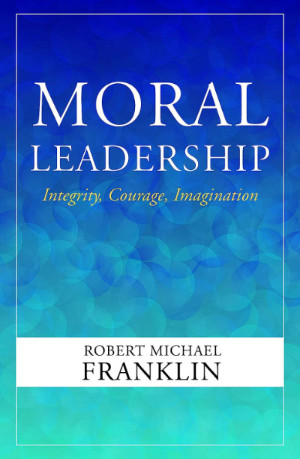
I love the Amazon description of the book: "Whether in a local community, an educational institution, or a global organization, the key to addressing the current crisis in American public life is genuine moral leadership. Moral leadership is anchored in intellectual and ethical integrity, a vision of and commitment to the public good, and personal investment in transformative community. Drawing on a lifetime of witnessing, emulating, and nurturing such leadership, Robert Michael Franklin proposes a model for moral leadership and ways in which readers in any context can discover and foster those qualities in themselves."
C.K.W. in Haymarket, VA, writes:
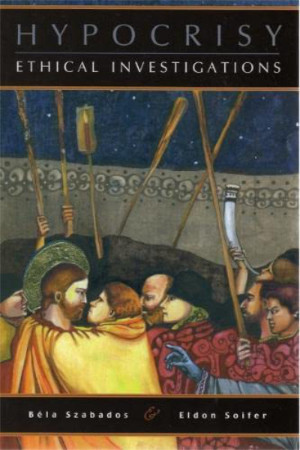
M.S. in Binghamton, NY, writes:
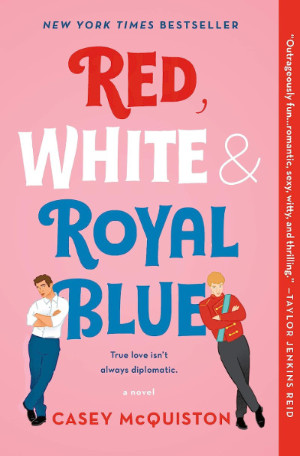
A gay romance novel between the son of the U.S. president and a British royal son. The main character at one point defaces the office door of a U.S. Senator to read "Bi**h McConnell."
R.K. in Mill Valley, CA, writes:
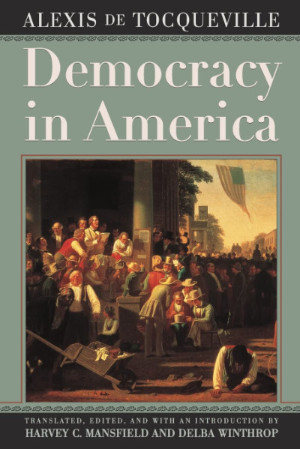
P.S. in Washington Township, OH, writes:
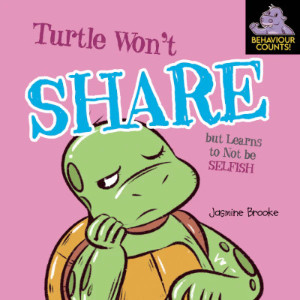
Pretty sure Mitch missed this one as a kid.
R.L.S. in Portland, ME, writes:
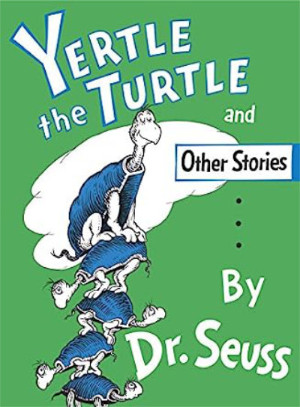
The story of a despotic turtle who will do anything to be top turtle. Hopefully, Mitch enjoys a similar ending, falling short of his dreams and becoming King of the Mud. After all, it's a question of candidate quality.
Also submitted by: G.G. in Tucson, AZ; P.C. in Madison, WI; J.P. in J.P. in Lancaster PA; J.R. in Cambridge, MA; R.S. in Ticonderoga, NY
D.G. in Ocala, FL, writes:
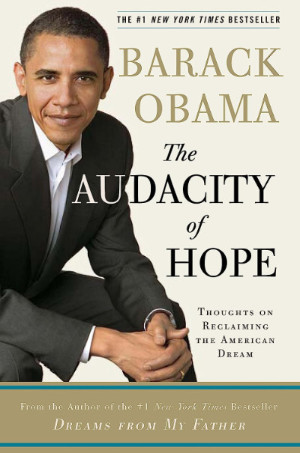
O.B. in Santa Monica, CA, writes:
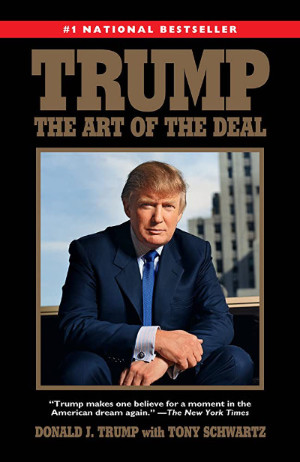
Of course, Trump hasn't read it, either.
Also submitted by: D.G. in Ocala, FL; B.H. in Westborough, MA; R.E. in Atlanta, GA; M.D. in San Nicolas, Aruba
C.B. in Charleston, SC, writes:

Oh, sure, he claims he lives by it, but I doubt he's ever actually read it.
Also submitted by: D.S. in Mt. Pleasant, SC; D.E. in Lancaster, PA; M.D.H. in Coralville, IA; V.M. in Cleveland, OH
John Roberts t-shirts the next time out. We think that one will be a highlight of the series. (Z)
This Week in Schadenfreude: Not My Pillow, Not Your Pillow, Not... Anybody's Pillow?
Mike Lindell, a.k.a. the MyPillow guy, has always been something of a sleazeball. He got himself into trouble with the law as a younger man. Then, after starting his pillow-making business, he goosed sales with dishonest claims and unethical sales tactics. He was banned by the Better Business Bureau for lying about "sale" prices, and has been sanctioned by the FDA for making false claims about the health benefits of his products.
That said, Lindell was a relatively minor star in the sleazeball galaxy until he found himself in orbit around the star of sleaze, one Donald J. Trump. Since that time, Lindell has upped his scammery (e.g., peddling Oleandrin as a "cure" for COVID), expended vast amounts of oxygen demonizing many of his fellow Americans, and become an anti-democracy crusader of the first order. Or, perhaps more appropriately, of the First Order.
But now, the consequences of Lindell's misdeeds are adding up. He is being sued for defamation, of course. And he lost the lawsuit over the $5 million prize he offered to anyone who could "prove" his "stop the steal" election totals were fishy (though that judgment is under appeal). And, hitting him where it really hurts, numerous major retailers, most notably Walmart, have canceled their contracts with MyPillow. Do you know how right-wing you have to be in order to be too right-wing for Walmart?
You always have to take what Lindell says with multiple grains of salt, but he says that the loss of these contracts has led to a nine-figure loss of revenue: "We lost $100 million from attacks by the box stores, the shopping networks, the shopping channels, all of them did cancel culture on us." Hmmmm. When a business decides that not carrying a product is better for its bottom line than carrying a product, that would seem to be "capitalism" to us, not "cancel culture." But what do we know?
Even if Lindell is exaggerating the precise impact on his business, it's clear that there has been an impact and that it's sizable. The proof of that is that MyPillow has subleased a big chunk of its factory space, and has begun auctioning off a fair bit of its industrial production equipment. Lindell says that if the business comes back, he can reclaim the subleased space and can buy new equipment. Our guess is that he shouldn't hold his breath.
No employees have been laid off, technically, though some meaningful number chose to quit when they were reassigned to different jobs (perhaps with lower pay rates). It's a shame that some number of rank-and-file workers has to pay the price for the boss's bad behavior. But as to the boss himself? "Vengeance is mine," saith the gods of schadenfreude. (Z)
This Week in Freudenfreude: Power the Polls
As we have written many, many times, a part of the electoral strategy for today's Republican Party is to intimidate and abuse poll workers. The reason for this, at least the one that GOP strategists will say out loud, is to get rid of "corrupt" poll workers who are stealing elections for the Democratic Party. It's also entirely plausible that Republicans want to steal a few elections for themselves, something that will be much easier if it happens under the watch of only friendly eyes. Either way, a lot of very decent people who signed up to work their local polling places out of a sense of civic duty have abandoned the job because it's become so unpleasant and/or dangerous. By 2018, nearly two-thirds of jurisdictions said they were having trouble finding enough poll workers.
This was the impetus behind the 2020 founding of Power the Polls, which was created by a nonpartisan consortium of activist groups and corporations to help encourage people to learn about the voting process and to volunteer to serve at their local polling places. The initial partners included MTV, the United Way and the Fair Elections Center; in the past 3 years they have added numerous other heavy hitters, including the AFL-CIO, Target, and Starbucks. Organizations and businesses that include tens of thousands of members/employees are, naturally, a particularly efficient source of recruits. And Power the Polls has had enormous success, enlisting roughly 750,000 people for the 2020 general election and another 250,000 for the 2022 primaries and general election.
Those are very big numbers; to put it in context, the 2016 election attracted a grand total of about 900,000 poll workers. Not every person recruited by Power the Polls will stick with it beyond one cycle, but nearly 95% of recruits said it was a good experience and nearly 90% said they wanted to work the polls again. In addition, Power the Polls keeps a list of people who haven't served yet, but who have expressed interest in doing so. And the organization has just started gearing up for the 2024 cycle.
Given the prominence of anti-democratic forces in America, it's heartening to see there are so many people and entities pushing back against that, in whatever way they can. And on that note, we're going to update the banners that rotate at the top of the page to add Power the Polls. If readers have other suggestions for pro-voting/pro-democracy organizations we should add, please let us know.
Have a good weekend, all! (Z)
If you wish to contact us, please use one of these addresses. For the first two, please include your initials and city.
- questions@electoral-vote.com For questions about politics, civics, history, etc. to be answered on a Saturday
- comments@electoral-vote.com For "letters to the editor" for possible publication on a Sunday
- corrections@electoral-vote.com To tell us about typos or factual errors we should fix
- items@electoral-vote.com For general suggestions, ideas, etc.
To download a poster about the site to hang up, please click here.
Email a link to a friend or share:
---The Votemaster and Zenger
Jul13 Clarence Thomas' Problems Keep Getting Worse
Jul13 Murdoch Is Losing Faith in DeSantis
Jul13 A Loose Anti-MAGA Coalition Is Forming
Jul13 Utah Supreme Court Considers the Issue of Gerrymandered Maps
Jul13 Sununu May Retire
Jul13 Mayra Flores Is Running Again
Jul13 The Voters Just Don't Get It
Jul13 The Legal Pundits Don't Get It Either
Jul12 Congressional Republicans Embarrass Themselves, Part I: Whistleblower Is a(n Alleged) Hood
Jul12 Congressional Republicans Embarrass Themselves, Part II: Tommy Tuberville May Need a Hood
Jul12 Trump Legal News: A Little Less Conversation, a Little More Action
Jul12 Trump Is Winning the Invisible Primary
Jul12 Trump's VP Choices: An Early Look
Jul12 Scavenger Hunt, Part III: Christmas in July
Jul11 As Time Goes By
Jul11 I, The Jury, Part VII: Instructions
Jul11 A Lousy Poll for DeSantis
Jul11 RNC Debate Qualifying Has Become a Mockery
Jul11 Swede-In?
Jul11 The Marine Corps Is Headless
Jul11 Today's In-N-Out News
Jul11 Scavenger Hunt, Part II: Trump in Pictures, Continued
Jul10 Biden Is Doing Foreign Policy Now
Jul10 New Hampshire Is Not Iowa
Jul10 South Carolina Could Be the Key Primary State for the Republicans in 2024
Jul10 Haley and Ramaswamy Have Met the Donor Threshold for the Debate
Jul10 DeSantis Solves His Problem with Retail Campaigning: Send His Wife
Jul10 Crystal Ball: Only Four Toss-up States in 2024
Jul10 Clarence Thomas Has Received Far More Gifts Than Previously Reported
Jul10 Jamie Raskin Will Stay in the House
Jul10 D.C. Bar Association Committee Recommends that Giuliani Be Disbarred
Jul10 Dutch Government Collapses over Immigration
Jul09 Sunday Mailbag
Jul08 Saturday Q&A
Jul07 Threading the Needle?
Jul07 Been Caught Stealing
Jul07 Say It with Us: Trump Is Going to Get a Political Rival Killed
Jul07 All the Way with the Anti-Gay
Jul07 Today's Report from Kookville
Jul07 This Week in Schadenfreude: (Hate) Crime Doesn't Pay
Jul07 This Week in Freudenfreude: People Can Change
Jul06 Spokesman for DeSantis super PAC Admits DeSantis is Way Behind Trump
Jul06 Republicans Are Struggling to Come to a Consensus on Abortion
Jul06 Abortion Will Probably Be on the Ballot This Year
Jul06 Trump Showed Classified Documents on His Patio
Jul06 McCarthy Is Facing a Tough July
Jul06 Republicans Have a Mormon Problem
Jul06 Swing State Donors Are Unhappy with Trump Claims about the 2020 Election
Jul06 Slotkin Has Another Challenger

